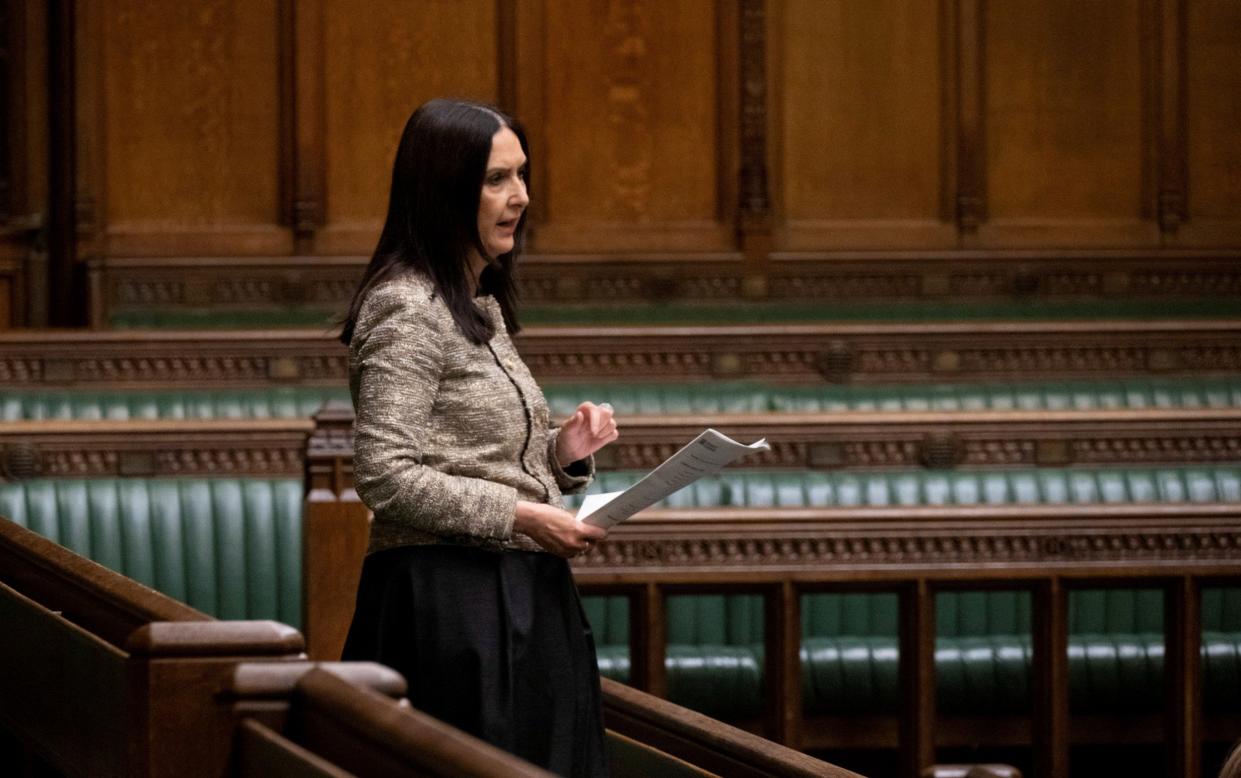Labour are on the verge of winning a seat from the SNP

- Oops!Something went wrong.Please try again later.
- Oops!Something went wrong.Please try again later.
- Oops!Something went wrong.Please try again later.
- Oops!Something went wrong.Please try again later.
- Oops!Something went wrong.Please try again later.
He has had less than an auspicious start to his new job as First Minister, but it is entirely possible that Humza Yousaf is about to face his first major electoral challenge. Margaret Ferrier, the MP for Rutherglen, on Glasgow’s south east border, has been recommended for a 30-day suspension from the House of Commons following her decision to travel from Westminster to Glasgow by train even after testing positive for Covid in 2020. Ferrier was first elected as an SNP MP in 2015. She then lost it to Labour in the snap 2017 general election but regained it two years later in 2019.
She now faces a recall petition which, if it attracts more than ten per cent of the electorate, will force a by-election. Given the recent electoral pattern, this is a seat Labour is confident of winning. But any by-election, while presenting a headache to the new SNP leader, could prove as much of a problem for Scottish Labour.
The prospect of a Labour victory in Rutherglen is so likely that the party can be expected to start lowering, or at least managing, expectations. After all, the SNP still leads Labour by a wide margin in the polls, and Yousaf, despite the criticisms aimed at him, could yet benefit from a honeymoon period as he settles in to Bute House.
But this really would be a contest that Labour must win at all costs, for the simple reason that if it can’t overturn a 5000 vote majority in circumstances such as this, then where – and how – on earth can it win? If, as has been often said, the road to a Labour victory at a UK level runs through Scotland, then the very future of Keir Starmer’s leadership and future prospects will depend on Rutherglen turning red.
Ferrier lost the SNP whip when it emerged that she had broken Covid rules. But her former party can still be expected to be on the defensive when it comes to local complaints about why they might be forced to return to the polling stations so long before the rest of the country. If they wanted to maximise their own chances, they would copy Labour’s tactics in Peterborough in 2019, when Fiona Onasanya, the Labour MP, was suspended from the House. Labour immediately took the initiative and successfully distanced itself from the disgraced parliamentarian by publicly campaigning for a recall election, which it duly won.
Will the SNP now do the same in Rutherglen? It will have to wait until the Commons ratifies the recommendation of the Standards Committee, but after that happens, the party cannot risk being accused of not sharing local anger at Ferrier, especially since the SNP have made much hay with the accusations against Boris Johnson for similar breaches of Covid rules. The SNP needs to be at the forefront of efforts to encourage voters to add their name to the recall petition.
Even then, it will be a difficult contest for the nationalists. Nicola Sturgeon, the then first minister, hardly helped matters when, during media questioning, she mistakenly referred to the Rutherglen MP as “Margaret Covid”. This week, the contest to replace Sturgeon as party leader revealed a party split almost down the middle between support for Yousaf, the “continuity candidate” and Sturgeon’s preferred successor, and Kate Forbes, the Christian social conservative and former finance secretary.
Yousaf drew intense criticism from within his party and beyond for his decision to offer Forbes a demotion within the Scottish Government, which, as he must have expected, she refused. He then went on to appoint a cabinet consisting almost entirely of MSPs who had publicly endorsed him during the leadership campaign.
None of this speaks to a particularly secure or confident mindset, and party officials would do well to start planning public walkabouts in Rutherglen that minimise the risk of Yousaf committing one of his frequent social media-friendly gaffes. The fact is that Humza Yousaf is not the political star that his predecessor was.
Rutherglen is typical of the seats Labour needs to win in order to form a UK government: largely working class and, for decades, a Labour stronghold. A recent analysis suggests that attracting just one in five SNP voters would secure Labour 20 seats north of the border, up from one today. With Sturgeon departed and the party machinery in disarray thanks to the resignation of Peter Murrell, Sturgeon’s husband, as the party’s chief executive, the timing of a potential by-election in Rutherglen could hardly be better for Labour, or worse for the SNP.
And neither party can afford to lose.

